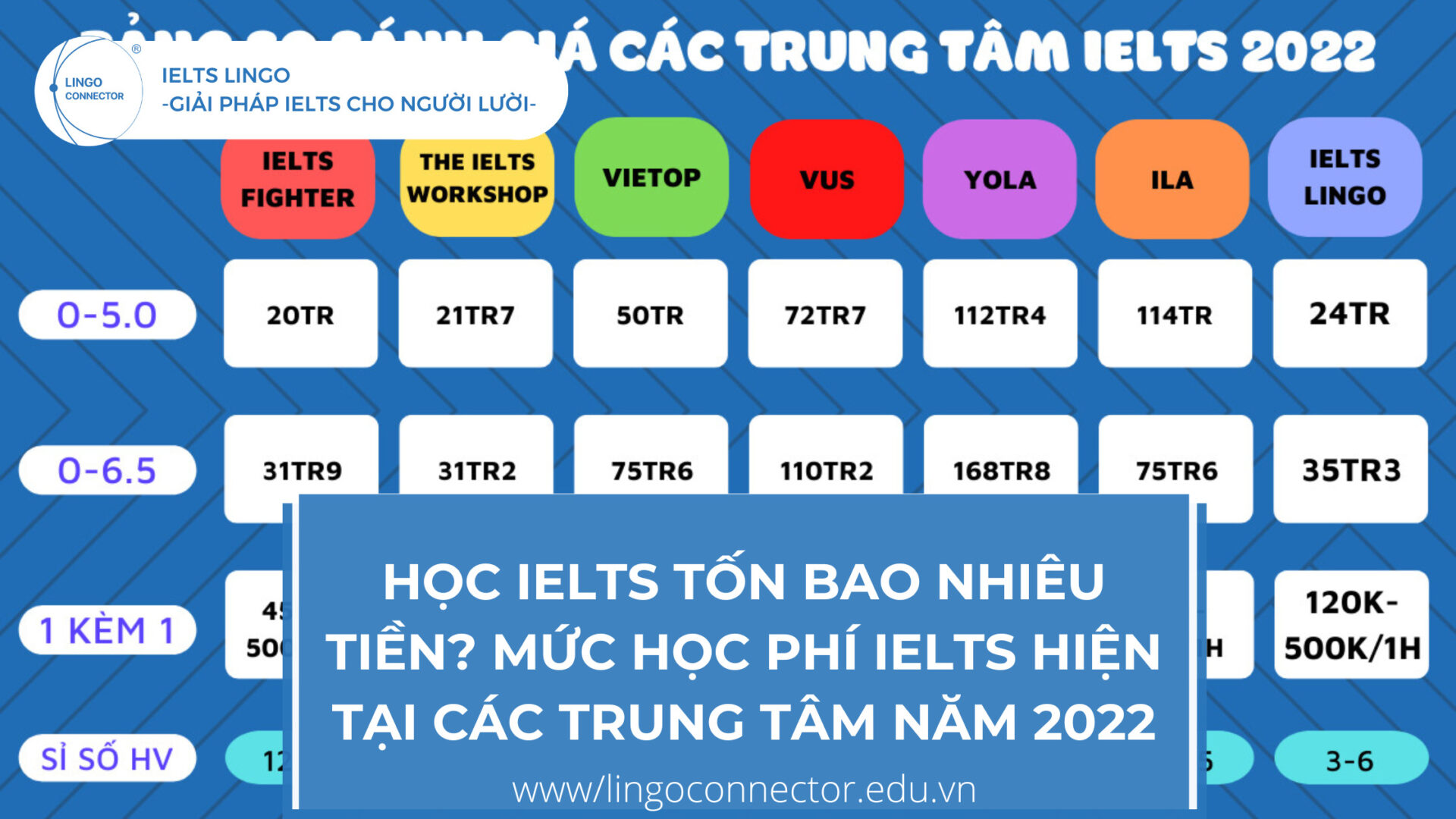Xin chào tất cả các bạn, tiếp tục với seri chia sẽ kiến thức về IELTS Speaking, ngày hôm nay. IELTS Lingo sẽ hướng dẫn đến cho các bạn những cách trả lời những dạng câu hỏi IELTS Speaking Part 1 đơn giản và dễ hiểu nhất.
Warm up questions
- Liking
- Disliking
- Describing something
- Type of questions
- Wh…/how ‘often’ Questions
- Habits
- Yes/No
- When you were a child
- In the future
- Comparing
Những dạng câu hỏi trong phần thi IELTS Speaking
1. Liking
Đối với dạng câu hỏi này, điều quan trọng nhất mà bạn cần tránh là sử dụng những từ ngữ đơn giản như: like, love, enjoy,… Bạn có thể thay thế bằng những từ sau:
- I’m really keen on…
- I’m a big fan of…
- I’m passionate about…
- I love…
- I am big on
- I’m pretty fond of…
EX: Do you like shopping?
I am very big on shopping because (why) it helps me to unwind. For example, after a week working hard, I usually (when) go shopping, even just window shopping, with (who) my mates/peers/friends. And by doing this, my stress goes.
Questions
- What do you like about your hometown?
- What do you like about your job/studies?
- What sort of music do you like?
- What sorts of books do you like reading?
- What type of movies do you like?
- Where do you like to shop?
- What types of food do you like?
- What types of free time activities do you like?
2. Disliking
Tương tự như dạng câu hỏi Liking, ở đây bạn nên tránh sử dụng những từ đơn giản như là dislike, hate,… mà bạn hãy thay thế chúng bằng những từ sau:
- I’m not much a fan of…
- …is simply not my cup of tea.
- I really can’t stand…
- …not my thing
- I am not satisfied with…
EX: Is there anything you don’t like about your hometown?
In general, I’d have to say that I am not so satisfied with the weather. To be more precise, I really can’t stand the summer months. You know, it’s because the temperatures are often reach up to 40 degrees, plus it is always humid, so it drives me crazy.
Questions
- Is there anything you don’t like about your hometown?
- Is there anything you don’t like about job/studies?
- Is there any food you don’t like?
- Are there any clothes that you don’t like?
- Are there any colors that you don’t like?
- What type of weather do you dislike?
- What type of noises do you dislike?
- What type of movies do you dislike?
3. Describe something
- Starting-off :Ok, then; actually; alright; well, you know;
- Point 1 : The first thing I’d like to mention is …
- Point 2: Another interesting point is that
- Point 3: Lastly, I would say that (optional)
EX: Tell me something about your hometown?
Well, I come from Ho Chi Minh. And, if I had to describe HCM, the first thing I would like to mention is that it’s very crowded. It’s so congested that even the locals have problems finding their way around. Another interesting point is that it offers splendid examples of contemporary architecture. Actually some of the renowned landmarks are among the tallest buildings in Vietnam, such as Bitexco and landmark 81.
Questions
- What sort of work do you do?
- What does your house look like?
- What does your neighborhood look like?
- What does your city/town look like?
- What sort of clothes do you like to wear?
- Describe a city you would like to visit?
- Describe a country you would like to visit?
- Describe a park you have visited?
4. Type of questions
Đối với dạng câu hỏi này thường sử dụng những từ “types of”, “kinds of”. Với loại câu hỏi này, nếu bạn chỉ đơn thuần liệt kê thật nhiều mà không đi sâu hơn vào các kiểu, loại đặc thù, câu trả lời của bạn sẽ rất chán và không đạt được điểm cao.
- …there’s quite a mixed variety of …
- … there’s quite a wide range of …
- …there are plenty/heaps of …
EX: Tell me about the different types of transportation in your city.
Of course, you know there are plenty of ways/means to commute in my city. Though I think the most commonly-used one could probably be buses. And the explanation for this could be that they are low cost and quite reliable. Other ones would be taxies or motorbikes, which are a bit more costly.
Questions
- What kinds of restaurants are popular in your country?
- What types of shops can be found in your local area?
- What types of things do people collect in your country?
- How do you spend your free time?
- How do people spend their free time in your country?
- What sorts of TV programs do you watch?
- What sorts of TV programs are popular in your country?
- What sort of things do people collect in your country?
5. ‘Wh../How Often’ questions
Với một số câu hỏi IELTS như: “Who do you spend your weekends with?”, “When do you listen to music?”, các thí sinh thường gặp phải vấn đề là họ trả lời quá “cụt lủn”. Bí quyết ăn điểm trong câu hỏi dạng này là thí sinh cần phải trả lời từ 2-3 câu khác nhau về What, Where, How often,.. Và bạn nên sử dụng cấu trúc “it depends” để tạo ra một tương quan đối lập “situational contrast” trong câu trả lời.
- Well to be honest, I would have to say that it really depends (contingent upon )
- Like for instance … Whereas in contrast/however…
| QUESTION | FUNCTION | EXAMPLE |
| What | Asking for information about something | What type of shop do you like? |
| When | Asking about a time | When do usually go shopping? |
| Where | Asking about a place | Where do you like go shopping |
| Which | Asking about a choice | Which is more important, the quality or the price of product? |
| Who | Asking about other people | Who do you usually go shopping with? |
| Why | Asking for a person | Why do you go with that person |
EX: What sort of restaurants do you usually eat at?
Well to be honest, I would have to say that it really depends. Like for instance, more often than not, I prefer to get something like fast food such as McDonalds because it’s quick and easy to get (accessible/handy). However, if I have more time I would rather have something healthier, such as a steak and salad from a decent restaurant like Saigon Steakhouse.
Questions
- What do you do at the weekend?
- When do you usually read?
- Where do you usually go for holidays?
- Which do you prefer, reading a book or watching T.V?
- Who do you spend your evenings with?
- When do you usually sleep?
- Why do you work/study there?
- How often do you play or watch sports?
6. Habits
EX: What do you usually do at the weekend?
- Well, it is contingent upon how I feel.
- If I’m exhausted after working all week I prefer to do something relaxing like chilling out on the sofa with a good book.
- But, if I feel energetic I would rather do something more exciting like go hiking or camping
Examples
- What do you usually do on the Internet?
- Where do you usually study?
- What do you like to do for holidays?
- When do you go shopping?
- What do you do to relax?
- How much sleep do you usually get?
- How do you celebrate festivals in your country?
- How much TV do you watch?
Lưu ý: trong dạng câu hỏi về này nếu bạn sử dụng câu điều kiện bạn sẽ được giám khảo coi thi đánh giá cao cho câu trả lời của bạn
7. Yes/No
Ở những câu hỏi YES/ NO thí sinh cũng gặp vấn đề tương tự như với dạng câu “Wh-/How”. Các bạn thường trả lời thẳng vào “Yes” hoặc “No” rồi sau đó triển khai thêm một số ý. Tuy nhiên cách trả lời này không hề sai, nhưng cách trả lời này lại quá đơn giản và đại trà, Chính vì vậy bạn không gây được ấn tượng cho giám khảo. Mà hãy trả lời cả “Yes” và “No”. Với cách trả lời như vậy sẽ giúp cho phần trả lời của bạn trở nên phong phú và hấp dẫn hơn rất nhiều
EX: Do you eat healthy food?
Well, to be honest, I would have to say that it really depends. Usually I prefer to eat something quick and convenient such as instant noodles because I am very busy with my studies. Although, sometimes I would rather spend a little more time and cook something healthier such as a rice and veggies *.
[*veggies = vegetables].
Questions
- Do you like the weather in your country?
- Do you enjoy eating food from other countries?
- Do you enjoy your work/studies?
- Are there enough festivals in your country?
- Do you enjoy going shopping?
- Do you like to get up early?
- Do you play or watch any sports?
- Are you planning any vacations?
8. When you were a child
Bạn có thể dùng các cấu trúc ngữ pháp sau cho dạng câu hỏi này:
- Các thì quá khứ như past simple, past continuous và past perfect
- Thì present perfect continuous (hiện tại hoàn thành tiếp diễn, have/has + been + ving) để nói về những sự việc đã bắt đầu ở quá khứ và tiếp diễn đến hiện tại. Ví dụ: They have been developing the city centre for the past five years.
- Used to + infinitive: Nói về một thói quaen trong quá khứ mà nay không còn.
- Would + infinitive: Nói về thói quen quá khứ.
Dây là dạng câu hỏi về quá khứ, hỏi về một thói quen trong quá khứ của bạn. Bạn có thể sử dụng các cấu trúc ngữ pháp cho dạng này là past simple, past continuous và past perfect,..
Khi nói về những thói quen trong quá khứ mà nay không còn bạn có thể sử dụng cấu trúc: Used to + infinitive
Nói về những thói quen trong quá khứ bạn có thể sử dụng cấu trúc: Would + infinitive
EX: What games did you enjoy playing when you were a child?
- Well, I was always very keen on playing video games. I spent almost all my free time playing them. However, I’m quite aware that… It wasn’t the healthiest way to spend my childhood and perhaps it’s contributed to my myopia*.
- [* myopia is an eye problem of short-sightedness]
- Well, I was always very keen on playing video games. I spent almost all my free time playing them, and I was so addicted to them back then. However, sometimes I played something more healthier like soccer to get lean and to avoid my mum’s complaint for being not proactive J.
Practice Questions
- What colors did you like when you were a child?
- Did you like to wear bright clothing when you were a child?
- Did you like any sports when you were a child?
- What type of food did you like when you were a child?
- Did you have a lot of friends when you were a child?
- What types of indoor activities did you do when you were a child?
9. In the future
Bạn có thể được yêu cầu đưa ra những lời dự đoán về việc gì đấy trong tương lai. Thay vì cấu trúc đơn giản như “will + verb”, hãy dùng các cụm từ sau để ghi điểm:
EX: “Where would you like to go for your next vacation?“
Well, to be honest, I don’t really have a clear plan but I guess that I will probably go overseas to some exotic location like Nepal because I’m really into hiking and exploring new areas.
Questions
- Would you like to learn a new language in the future?
- In the future, what sort of home would you like to live in?
- In the future, do you think people will use mobile phones more than now?
- In the future, do you think people will be healthier or less healthy than now?
- Do you think your hometown will change much in the future?
- Do you think you will have more free time in the future?
10. Comparing
Bạn có thể dùng cấu trúc so sánh hơn để trả lời cho dạng câu hỏi này:
- Good – better
- Bad – worse
- Far – further
For short adjectives, add –(e)r. If they end in –y change to –ier.
- Hard – harder
- Cheap – cheaper
- Easy – easier
- Lazy- lazier
For longer adjectives, use more.
- More interesting
- More difficult
EX: “Do you prefer to read a book or watch TV?”
Oh, I like them both so it’s hard to choose only one. But I guess that if I had to choose one, then I would rather read a novel and the main reason for this is because I slightly prefer the storylines of novels to TV.
Questions
- Do you prefer studying in the morning or in the evening?
- Do you prefer taking photos with your phone or with a camera?
- Would you rather live in a place with hot weather or cold weather?
- Do you like to take lots of short holidays or one long holiday?
- Do you prefer to write by hand or using a computer?
- Do you prefer to send text messages or to call someone
Trên đây là tổng hợp những cách trả lời cho phần thi IELTS Speaking Task 1 mà IELTS Lingo đã chia sẽ đến cho các bạn, hy vọng với những kiến thức này sẽ giúp cho các bạn có được những chiến thuật trong phần thi của mình. Chúc các bạn học tập tốt!
Xem thêm: Tổng hợp những mẫu câu hỏi và trả lời IELTS Speaking 6.5 Task 2 (phần 1)























